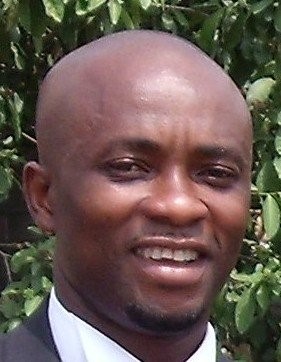“If you cheat Ananse, you cheat yourself.” – Akan proverb
As a little boy, the thought of shame was enough for me to tread softly wherever I found myself. From home to school to any place, we were made conscious of the consequences of wrong or foolish behaviour. We were schooled in sensitivity and the delicate feeling of others. This was drilled in us and its object was to enable us to maintain a sense of restraint against offending our neighbours and the thrive of humanity
It was called a sense of shame, and it was an abstract concept that sang the tune of morality and spoke quotes of proverbs. It was an education that had a goal of infusing honour and nobility, bestowed with goodness for the greater good of our society and our humanity. It was to help us sense embarrassment and through that inspire us to live upright lives for the thrive of humanity. It did not involve volumes, but it inculcated volumes of ethical behaviour and all the tints that follow. It was a sense to supplement our traditional senses so that we could behave with restraint and give the laws of the land a breather.
The sense of shame pricks us to have a nauseated feeling when we commit wrong or we fail to live up to standards. Sometimes, it is described as a voice of our conscience that emits a painful emotion. It gives us an understanding of hanging our heads low, so that every time we walked with our heads up high we would appreciate it a lot better. It made us feel bad about our appalling behaviours even if no one notices. All in all, the sense of shame served the purpose of making us know we have done wrong and the need to correct that wrong. And for ages it served as a reformist educator in individuals and society.
Unfortunately, the rule of modernity has thwarted shame as not feeling good about one’s self and given it a bad name. It has classified insecurity as a sense of shame and it has stuck so deep it has become an emotional pain and suffering for its bearers. It has, with its seductive strategy of freedom to do as one wants, and the ‘be bold’ mentality effectively removed the sense of shame in the greater percentages of humanity’s populace. Her ‘feel no shame’ campaign has swept across the face of society with the efficiency of a plough and left in its wake a chain of paradoxes.
We have many more schooled individuals, but fewer educated ones. We have intelligence sprawling all over the place and yet effectiveness and efficiency have become scarce commodities. We go great lengths to perfect our intellectual abilities, but not the sizes of our hearts. The wealth of the world keeps increasing, yet poverty is increasing at an alarming rate. We have lots and lots of religion around us, yet the call to live as spirit beings has diminished, and morals standards have fallen to an all-time low. We earn higher incomes, but we have poorer sense of judgments. We glorify successfulness and demonise sainthood. We talk a lot more and act a lot less. And in all these, we claim we want to have fuller lives.
Where is the sense of shame? Who do we think we deceiving? The seemingly never-ending unabashed attitude we are exhibiting is a clearer indication that our sense of shame has gone awry. We are not even ashamed of our greed. We live without a shrug that the bulk of our actions create misery for the larger population – your neighbours who have the same image and likeness of God as you do. Even when we are caught doing wrong, we simply smile about it as if we have conjured that greatest act in humanity’s history.
The notoriety of shamelessness has eaten into the very core of our society that ‘service to mankind,’ previously perceived as ‘service to God’ has been commoditised. It has been so ingrained in our culture that it is difficult to eradicate it in a short period of time. No wonder the true portraits of our societal life are the prevalence of injustices, immorality, diseases, poverty, illiteracy, unemployment and consumerism among many others.
But as always, there is light at the end of the tunnel. And that light can come from no other person than you. You are the first source of humanity’s hope. It is you who can ensure that the generation after us will not inherit the shameful mindset that has become cancerous to the thrive of our society. It is you who can stop the ‘shameless’ legacy from being passed down from your children to their children.
Did you just ask how? Well every action of yours is an inspiration to someone watching you, especially your children and their circle of friends, as well as the children of your friends and colleagues and their circle of friends. That sounds like a large crowd. And be reminded that children are more observant than adults; they see a lot of you than you know. And the icing on the cake; they are brilliant imitators – everything they see you do, they will imitate better, especially your shameless acts. So stop being shameless…
__________________________________________________________________
Kodwo Brumpon is an executive coach at Polygon Oval, a forward-thinking Pan African management consultancy and social impact firm driven by data analytics, with a focus on understanding the extraordinary potential and needs of organisations and businesses to help them cultivate synergies, that catapults into their strategic growth, and certifies their sustainability.
Comments, suggestions, and requests for talks and training should be sent to him at [email protected]










